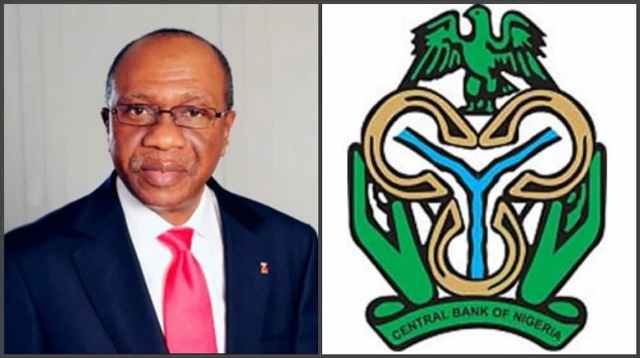The Central Bank of Nigeria (CBN) has announced upward review of its cash withdrawal policy by increasing maximum weekly withdrawal limit across all channels by individuals and corporate organisations to N500, 000 and N5m respectively
The review represents about 400 per cent increase from N100, 000 and N1 million withdrawal limits set by the apex bank in its December 6 circular.
Recall that in an earlier circular, the CBN stated that with effect from January 9, 2023, the maximum over-the-counter cash withdrawal limit by individuals and corporate organisations per week would be N100, 000 and N500, 000 respectively.
It added that transactions above the set limits would attract five per cent and 10 per cent processing fees respectively.
It further stated that maximum cash withdrawal per week via automated teller machines, from January 9, would be N100, 000 subject to a maximum of N20, 000 cash withdrawal per day.
It also directed banks to load only N200 and lower denominations into their ATMs.
CBN’s director of banking supervision, Mr. Haruna Mustafa, said in a memo yesterday that the apex bank attributed the upward adjustment of cash withdrawal limits to the feedback it got from stakeholders.
“All Deposit Money Banks (DMBS) and Other Financial Institutions-Payment Service Banks (PSBs); Primary Mortgage Banks (PMBs); Microfinance Banks (MFBs), Mobile Money Operators (MMOs) and Agents, Mustafa said the adjustments followed feedback received from stakeholders.
“The maximum weekly limit for cash withdrawal across all channels by Individuals and corporate organizations shall be N500, 000.00 and N5 million respectively.
“In compelling circumstances where cash withdrawal above the limits in above is required for legitimate purposes, such requests shall be subject to a processing fee of three per cent and five per cent for individuals and corporate organisations respectively,” the memo stated.
The apex bank also directed that third party cheques above N100, 000 shall not be eligible for payment over the counter. It said the extant limit of N10 million on clearing cheques subsists.
For transactions above the withdrawal limits, financial institutions are required to get details of the customers and upload same on the CBN portal created for the purpose.
The bank listed the documents that can be used as National ID; International Passport; Driver’s License; Bank Verification Number (BVN) of the payee; Tax Identification Number (TIN) of both the payee and the payer from the customer, at the minimum.
It insisted that such means of identification must be uploaded on the portal created for such purpose by the CBN.
The apex bank also said approval in writing by the managing director/chief executive officer of the financial institution authorising the withdrawal will also be required for customers exceeding set cash withdrawal limit.
“Monthly returns on cash withdrawal transactions above the specified limits should be rendered to the Banking Supervision, Other Financial Institutions Supervision and Payments System Management Departments as applicable.
“Compliance with extant AML/CFT regulations relating to KYC, on-going customer due diligence, currency and suspicious transaction reporting etc. is mandatory in all circumstances.”
It added that customers should be encouraged to use alternative channels – internet banking, mobile banking apps, USSD cards/POS, eNaira, etc. – to conduct their banking transactions.
“Bank and mobile money agents are important participants in the financial system, enabling access to financial services in underserved and rural communities. They will continue to perform these strategic functions, in line with existing regulations governing their activities
“The CBN recognises the vital role that cash plays in supporting underserved and rural communities and will ensure an inclusive approach as it implements the transition to a more cash-less society.”
“All banks and OFIs are to note that aiding and abetting the circumvention of this policy will attract severe sanctions. The above directives supersede that of December 6, 2022 and take effect nationwide,” the CBN stated.
The bank stated that the adjusted directive takes effect nationwide from January 9, 2023.


























































